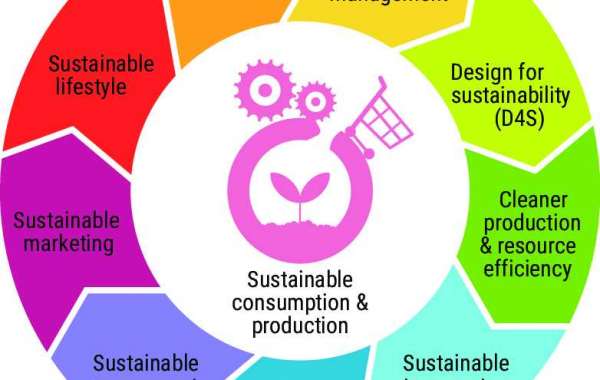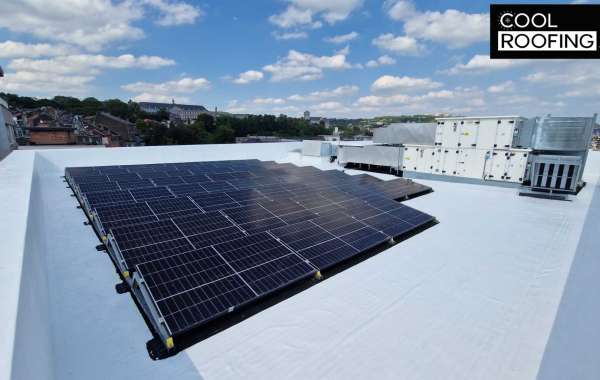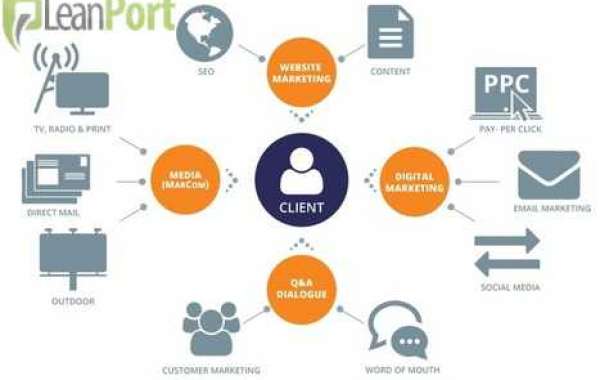The following article was written by essay shop
In the UAE, sustainable consumption is one of the main tasks, and it is based on the following initiatives: energy efficiency, preventing sea dumping, waste-to-energy projects, preserving fisheries, promoting sustainable consumption in energy, recycling and waste management, desalination plants. Using alternative fuel vehicles and making them popular among consumers are the practices initiated by the United Nations General Assembly. Therefore, the UAE as well as other countries celebrates the National Environment Day every year on the 4th of February (UAE SDGs, 2018). However, people indeed should be environmentally friendly every day and follow respective sustainable lifestyles. Correcting consumer attitude and behavior and reducing their carbon footprint are the most difficult tasks as they involve influencing people and encouraging them to act differently. Thus, the main task of the UAE is to influence consumer behavior, persuade people that its changing is worthy of replacing petrol-driven cars, and show all the advantages of electric vehicles not only to them but to the whole environment they live in. Consequently, using and buying electric or hybrid cars is a sustainable consumption project that should be implemented in the UAE to make it more eco-friendly and sustainable country, lessen the use of petrol-powered cars, and change the consumer behavior and attitude.
Research
The UAE consumers demonstrate a positive tendency when it comes to using and buying electric and hybrid cars. According to UAE Electric Vehicles (2017), there are no barriers in the introduction of the electrically-powered means of transport as the UAE President’s office has launched ‘EV Accelerator Initiative’. In addition, Roads and Transport Authority invested in 300 hybrid taxies that constitute 6% of all taxies used in Dubai (UAE SDGs, 2018). Currently, a little percentage of consumers use electric and hybrid cars; however, the UAE governmental initiatives are going to increase consumers number by investing into manufacturing such cars, replacing 10% of fossil fuel cars of federal ministries and agencies by electric cars, and providing the buyers of new electric vehicles with free registration, free designated green parking, and some free of charge services (UAE SDGs, 2018). Moreover, Baldwin (2017) insists that new governmental incentives will encourage consumers to refuse to use petrol-driven cars in favor of cleaner and more eco-friendly electric vehicles. Sharma (2018) reports that the Middle East is one of the pioneers of electric car adoption and a very attractive market for electric vehicle manufacturers like Tesla. For example, this company opened its first vehicle dealership in Dubai last year.
According to statistics, aged 30-39 and married male consumers with children are interested in buying electric vehicles. Asian people with incomes below $16,000 are enthusiastic about buying electric or hybrid cars (Baldwin, 2017). Consumers report that they are ready to use electric vehicles for going to work and short trips, running household errands, taking children to and from schools, travelling in the weekends and leisure trips, for business purposes, and transporting goods. The most attractive government initiatives that catch customers’ attention are free charging, free registration, free parking, and special-rate bank loans. However, there are also some consumers that are not aware of such initiatives; therefore, the UAE government should communicate more information about them.
According to the conducted survey among 50 people from the UAE, it has been established that 30% of respondents are interested in purchasing electric cars, 30% are somewhat interested, 15% are not interested at all, 15% of respondents do not know, and 10% of respondents are somewhat not interested (See Appendix 1). Thus, 60% of consumers feel good about electric cars, and 40% have a negative attitude toward them (See Appendix 1). When it comes to the quality of electric cars, 50% of UAE consumers feel good about it, and 50% feel bad (See Appendix 1). According to the conducted survey, 80% of UAE consumers believe that electric cars are more eco-friendly and cleaner than fuel cars, but 20% of them do not support this claim (See Appendix 1). Next, 60% of the respondents believe that the government incentives are attractive, but 40% fail to believe so. 80% of respondents want to make the UAE environment safer and cleaner, but 20% do not believe that it can be done with using electrically-powered vehicles (See Appendix 1). 80% of the respondents believe that buying an electric car is a challenging decision, but 20% do not support this claim (See Appendix 1). The half of respondents is convinced that the adoption of electric cars in the UAE can improve the environment, but the other half objects to this statement. Furthermore, 80% of respondents are convinced that electric cars are not reasonably priced, and only 20% of them state that they can afford to buy electric vehicles. Thus, the general trends among consumers in relation to electric cars are positive, but it is necessary to work on customers’ awareness of the need for the environmental protection and launching electric vehicles campaign as one of the steps to it. Moreover, the UAE government should consider consumer desires and preferences about electric cars as they will determine whether the adoption of electric cars will be fully successful in the future.
Issues and Challenges Surrounding the Adoption of Electric Cars
Despite the fact that the adoption of electric cars in the UAE is supported by the government, this sustainable consumption project is related to many issues and challenges. First, the government incentives are not able to make all consumers buy and use electric cars (Schaal, 2015). Thus, there is the need for finding other investors in order to develop the adoption of electric vehicles in the UAE. According to Nair (2017), the expensiveness of electric cars is one of the challenges for the UAE consumers as there are a few people among them who can afford to buy Tesla Model S or Model X (from $90,000) and BMW i-series (up to $140,000). It means that the UAE needs more accessibly priced electric models and a broad network of fast charging points as well. Second, the market of electric cars is not growing, which also restrains the adoption of the electric vehicles in the UAE (Srinivasan, 2018). Such incentives like free electricity and free parking are attractive to consumers, but most of them understand risks and hazards related to an electric car; therefore, they prefer fossil fuel vehicles (Ruiz, 2016). As the number of charging stations is not big, the consumers should stay in line for more than three hours to recharge their cars. Moreover, the charging itself takes some time.
The consumer attitude and prejudice about the comfort of using electric cars belong to other challenges that restrain the process of the adoption of such vehicles. For example, potential consumers are afraid that they cannot use electric cars for long trips due to the lack of recharging stations (Crimson Hexagon, n.d.). Furthermore, the charging infrastructure is only developing; therefore, consumers cannot be sure that they will feel comfortable in using electric cars. According to Ruiz (2016), availability is another challenge that restrains consumers from purchasing an electric car. Thus, it is a must to extend the electric vehicle market and introduce more options within it.
Marketing Tactics for Improving Consumer Sustainable Behavior
Consumer behavior theories explain the factors that can influence consumer purchasing decision and what marketing tactics to use for improving clients’ behaviors. The main consumer behavior theories are the one of reasoned action, the EKB model, motivation-need theory, and Hawkins Stern impulse buying (Rajagopal, 2018). The theory of reasoned action presupposes considering whether a purchase brings a positive outcome and whether there is a gap between consumer’s initial intention and the completion of an action (Rajagopal, 2018). Thus, it is necessary to raise more consumer awareness about the advantages of using electric cars while showing that it is clean, environmentally friendly, and less costly than a fossil fuel car. The EKB model (Engel, Kollet, Blackwell) believes that consumer behavior is influenced by marketing materials and comparing them to past experiences and expectations (Rajagopal, 2018). Consequently, it is a must to raise consumer awareness about advantages of electric vehicles and their positive impact on both consumers’ lives and the environment with the help of information via TV, radio, newspapers, and internet. Thus, mass media should reveal what consumers expect from electric cars and show how these vehicles can change their lives.
Motivation-need theory takes into consideration the following consumer needs: self-actualization, esteem, love, safety, and physiological aspect (Rajagopal, 2018). It means that marketing campaigns should inform people about the products but also explain how they can fulfill consumer basic needs. Therefore, to improve consumer behavior, it is necessary to prove that an electric car will have to satisfy such physiological needs of consumers like rest and comfort. Furthermore, an electric car can fulfill consumer safety needs like security not only in relation to them directly but to the environment. Moreover, an electric car responds to consumer psychological needs like feelings of accomplishment, morality, and pro-environmental position. Finally, an electric car should accomplish self-actualization needs like consumers’ possibilities to buy it and reinforcing consumers’ uniqueness and desire to be eco-friendly. Hawkins Stern impulse buying is based on rational purchasing decisions made by customers due to a certain impulse that can be driven by some external factors like the period of time spent while staying in a line, expensiveness, and other aspects associated with comfort (Rajagopal, 2018). Thus, to improve consumer sustainable behavior, it is a must to increase the number of recharging stations, suggest more affordable variants of electric cars, and communicate more information about the opportunities like free parking and free registration of electric vehicles.
In conclusion, using and buying electrically-powered or hybrid cars is a sustainable consumption project that should be implemented in the UAE as this initiative is supported not only by the government but consumers. It is a must to make the UAE more eco-friendly and sustainable country by lessening the use of petrol-driven cars and changing consumer behavior and attitude. The survey has shown that consumers are conscious of the advantages of electric cars, but not all of them are ready to refuse from the fossil fuel vehicles for considerable reasons. The main challenges related to electric cars adoption are expensiveness, availability of electric cars, the lack of enough number of recharging stations, staying in a line for recharging, and inability to use the vehicles for long trips. It is necessary to use marketing tactics to influence consumer behavior. First, it is a must to provide enough information about electric cars and suggested government initiatives to those who are ready to use such vehicles. Second, it is obligatory to study consumer needs and consider them while adopting this sustainable consumption project. Third, it is a must to overcome all external factors that have a negative impact on a consumer purchasing decision (e.g. expansiveness, availability). Finally, all marketing campaigns should show that each purchase of an electric car is a consumer’s individual way of saving and protecting the environment for future generations.








